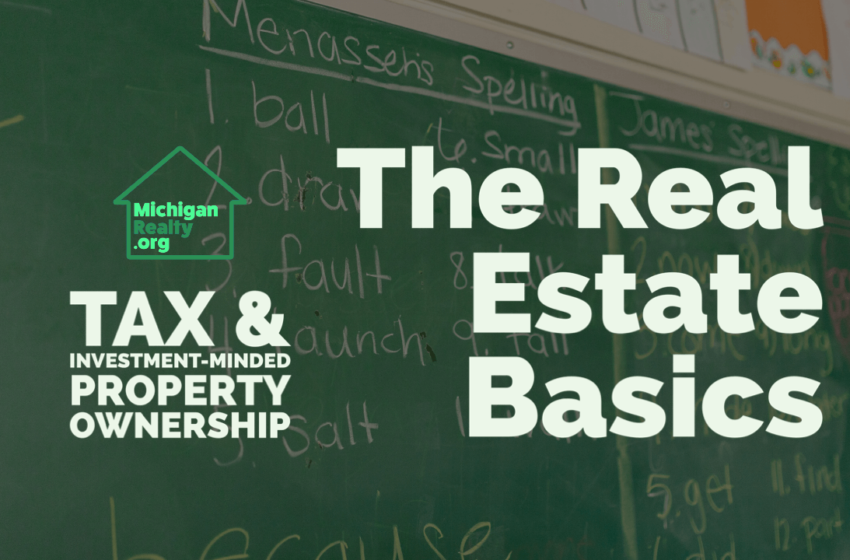Real Estate Basics – Tax & Investment minded Property Ownership

In the maze of real estate, the path to successful homeownership is often obscured by complex tax codes, investment strategies, and financial jargon. We’ll explore the multifaceted tax and investment overlapping ideas of owning real estate, illuminating the path for both novice and experienced property owners.
Let’s begin.
Section 1: The Tax Landscape
1. Mortgage Interest Deductions
One of the most significant tax benefits for homeowners is the ability to deduct mortgage interest. This deduction applies to both primary and secondary residences, including unconventional structures like houseboats. By understanding how to leverage this deduction, homeowners can reduce their taxable income, leading to substantial savings.
2. Property Taxes and Deductions
Real estate taxes vary widely by location, and understanding these taxes is essential for budgeting and financial planning. Homeowners can often deduct property taxes, but it’s crucial to recognize the specific rules and exceptions that apply to individual situations. A home’s property tax is often the make or breaking point of the underwriting process for a mortgage, and too expensive property taxes can kill a deal.
3. Capital Gains and Losses
Selling a property can lead to capital gains or losses, depending on the sale price and acquisition cost. Understanding the difference between short-term and long-term capital gains, and how they are taxed, can significantly impact the financial outcome of a sale. When you increase your equitable position beyond that of your purchase price that amount is considered unrealized capital gains. As of right now, and hopefully always, you will not be taxed for the unrealized capital gains until you sell your position.
4. Depreciation for Rental Properties
For those venturing into rental property investments, depreciation is a valuable tool. By gradually reducing the value of the property for tax purposes, investors can recover part of their investment through tax adjustments. This strategy requires careful planning and adherence to specific rules and timelines.
Section 2: Investment Strategies
1. Building Equity and Appreciation
Equity is the cornerstone of real estate investment. Growing equity through strategic purchases, renovations, and market timing can lead to substantial financial gains. Appreciation, the increase in property value over time, is often a slow but steady path to wealth creation.
2. 1031 Exchanges: A Creative Investment Tool
The 1031 Exchange is a powerful investment strategy that allows property owners to trade like-kind properties without immediate capital gains taxes. This tool offers flexibility and potential for growth, but it requires careful planning and adherence to strict guidelines. This tool ensures that unrealized capital gains stay unrealized.
3. Rental Property Investments
Investing in rental properties offers both passive income and potential for appreciation. From understanding rental markets to managing properties effectively, this investment avenue requires a blend of business acumen and real estate knowledge. Now with a short-term rental market booming because of platforms like AirBNB, the requirement to find long-term candidates is less so important as other options are much easier to find.
4. Diversification and Risk Management
Diversifying real estate investments across different property types, locations, and investment strategies can mitigate risks and enhance returns. Understanding how to balance risk and reward is a nuanced skill that comes with experience and market insight. Holding land, short- and long-term residential rentals, and commercial real estate allows you to mitigate risk across different markets. Each type having different tax benefits.
Final Thoughts
The world of real estate is rich with opportunities, but it’s also complex. From navigating the tax landscape to crafting creative investment strategies, successful property ownership requires a blend of knowledge, skill, and a little foresight.
Even though we’ve only explored the real estate basics, tax and investment aspects of ownership are multifaceted and deeply interconnected. Whether you’re a first-time homebuyer or a seasoned investor, understanding these complexities can unlock the door to financial success and personal fulfillment.
In the words of the renowned architect Frank Lloyd Wright, “The space within becomes the reality of the building.” Similarly, navigating the space within the complexities of real estate becomes the reality of successful ownership. By delving into the depths of tax codes, investment strategies, and financial planning, we can build a foundation for prosperity and create a legacy that stands the test of time.
Make sure to read more on our home page.
Visit our Youtube channel.
Disclaimer: this article like all articles published by MichiganRealty.org,LLC are for the purpose of entertainment and while they do serve as a general educational resource this article like others are not the product of real estate, legal, tax, or investment advice and readers should always consult with a professional in those areas of interest.





